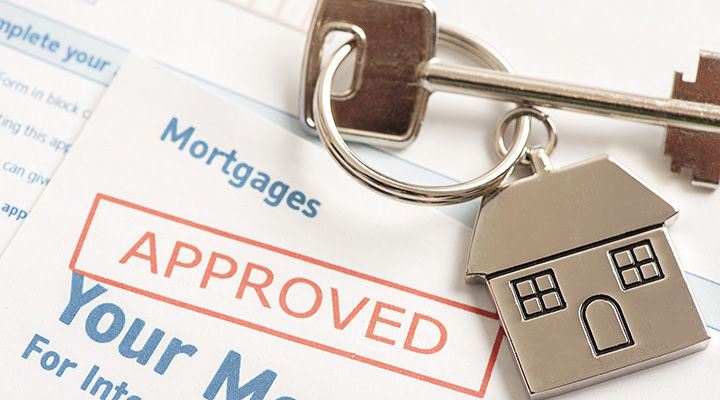How Fast Cash services streamline short-term borrowing needs
Wiki Article
A Comprehensive Overview to Home Loans: Provider and Options Explained
Charting the world of mortgage can be complex. Numerous options exist, each with special attributes and effects for possible homeowners. Comprehending the distinctions in between conventional and government-backed fundings is important. The application procedure involves thorough paperwork and pre-approval actions that many neglect. As customers start on their home-buying journey, recognizing how to manage these obligations effectively might mean the difference in between economic security and difficulty. What approaches can empower them on this course?Understanding Home Loans: Types and Terms
Comprehending the different kinds of mortgage and their linked terms is crucial for prospective property owners, as it furnishes them with the understanding needed to make enlightened economic choices. Mortgage can be extensively classified right into fixed-rate and adjustable-rate home loans. Fixed-rate home loans preserve a constant rates of interest over the life of the loan, offering security in month-to-month payments. On the other hand, adjustable-rate home mortgages include interest rates that may vary after an initial fixed period, possibly causing lower initial repayments however boosted future prices.Added terminology is essential for quality. Principal describes the loan quantity borrowed, while passion is the expense of loaning that quantity. The term of the lending suggests its duration, normally ranging from 15 to 30 years. Recognizing these fundamental concepts makes it possible for potential customers to browse the facility landscape of home funding, guaranteeing they choose the best finance choice that straightens with their monetary situation and long-lasting objectives.
Traditional Fundings vs. Government-Backed Loans
A considerable distinction in home financing exists in between government-backed finances and standard car loans, each accommodating different borrower requirements and circumstances. Conventional finances are not insured or ensured by the government and normally call for higher credit report and down settlements. They are commonly appealing to debtors with stable financial backgrounds, as they might offer affordable rates of interest and terms.In comparison, government-backed financings, such as FHA, VA, and USDA car loans, are designed to help particular teams of consumers, including novice buyers and veterans. These finances generally feature reduced down repayment requirements and more flexible credit scores requirements, making them easily accessible to a broader series of individuals.
Ultimately, the option in between standard and government-backed car loans rests on the borrower's financial situation, lasting goals, and eligibility, making it important to thoroughly evaluate both choices prior to making a choice.
The Function of Rates Of Interest in Home Funding
Passion prices play an essential duty in home financing, affecting borrowers' decisions between set and variable rate financings. The choice in between these options can considerably influence monthly payments, affecting overall affordability. Recognizing exactly how rate of interest operate is crucial for any individual maneuvering through the home mortgage process.Dealt With vs. Variable Prices
Homebuyers face an important decision when picking in between dealt with and variable rates, as this selection substantially affects the cost of funding gradually. Fixed-rate mortgages use stability, securing a rate of interest price for the life of the car loan, which can be beneficial in a climbing rate of interest setting. This predictability allows property owners to budget better. Conversely, variable-rate mortgages, or variable-rate mortgages (ARMs), commonly start with lower first prices that can fluctuate based upon market conditions. While this might result in reduced initial payments, consumers deal with the threat of boosted rates in the future. Inevitably, the selection between fixed and variable rates depends on specific financial circumstances, threat resistance, and assumptions regarding future interest price patterns.Effect on Regular Monthly Payments
When assessing home funding alternatives, the impact of rate of interest on month-to-month payments is a vital aspect to contemplate. Rates of interest directly influence the total price of loaning, affecting just how much a customer will pay monthly. A lower rates of interest cause smaller sized monthly payments, making homeownership extra inexpensive. Alternatively, greater prices can greatly increase monthly commitments, possibly stressing a homeowner's budget. Additionally, the loan term plays an essential duty; longer terms may spread settlements out yet can cause paying more rate of interest over time - Fast Cash. Recognizing how interest prices interact with finance quantities and terms is crucial for borrowers to make educated monetary decisions and pick a home mortgage that aligns with their lasting monetary goalsMortgage Brokers vs. Straight Lenders: Which Is Right for You?
When thinking about a home mortgage, prospective borrowers need to recognize the distinct roles and obligations of home loan brokers and direct lenders. Each choice provides its own benefits and negative aspects, which can considerably influence the total expense of funding. An educated selection requires careful evaluation of these variables to figure out the very best suitable for specific needs.Duties and Obligations Defined
Navigating the intricacies of home funding needs a clear understanding of the roles and obligations of home loan brokers and direct loan providers. Cash Advance. Home loan brokers serve as middlemans, linking debtors with lenders. They examine a customer's economic circumstance, curate loan choices, and guide customers via the application procedure, usually leveraging numerous lending institution connections to secure positive terms. Conversely, straight loan providers, such as financial institutions and cooperative credit union, supply loans directly to borrowers. They manage the whole car loan process, from application to financing, with an emphasis on their very own items. Each alternative provides unique avenues for obtaining funding, making it essential for customers to examine their requirements and preferences when making a decision in between involving a mortgage broker or functioning with a straight lenderAdvantages and disadvantages Contrast
Choosing between a home mortgage broker and a straight loan provider can substantially influence the home funding experience, as each choice offers distinct advantages and downsides. Home loan brokers function as middlemans, giving access to multiple lending institutions and possibly better rates, while streamlining the funding process. However, they might charge fees and depend on commission structures that can affect their referrals. On the other hand, straight lenders streamline the process by offering in-house financings, which can lead to faster approvals and fewer complications. On the other hand, they might have a limited option of products and less versatility concerning pricing. Inevitably, the decision depends upon individual choices, financial circumstances, and the preferred level of assistance throughout the mortgage journey.Cost Effects Examined
While examining the cost implications of home loan brokers versus direct loan providers, potential property owners need to consider different elements that can substantially affect their overall expenses. Home mortgage brokers normally bill costs for their solutions, which can vary considerably, influencing the general loan cost. Nevertheless, they usually have accessibility to a bigger range of funding items and competitive rates, potentially saving customers money over time. Alternatively, direct loan providers might offer a more straightforward process with perhaps lower ahead of time expenses, yet their funding alternatives might be restricted. It is vital for homeowners to compare rate of interest, fees, and terms from both brokers and lending institutions, ensuring they make an educated decision that straightens with their economic objectives and requirements.The Home Funding Application Process: What to Expect
The home mortgage application procedure can typically really feel frightening for numerous applicants. It normally starts with collecting necessary documentation, including proof of earnings, credit rating, and individual recognition. Lenders use this info to examine the applicant's economic stability and determine lending eligibility.Next, candidates submit an official application, which may entail completing on the internet kinds or offering information in person. During this phase, lending institutions assess various variables, such as debt-to-income ratio and credit report, to select financing terms.
When pre-approved, the loan provider will certainly carry out a thorough assessment of the residential property to identify its value aligns with the loan amount. This phase might also include added background checks.
After final authorizations and problems are met, the loan is processed, leading to the closing phase. Understanding each step empowers applicants, making the trip see post smoother and more manageable as they move toward homeownership.
Tips for Handling Your Home Mortgage Properly
Successfully navigating the home financing application process is just the start of a liable monetary trip. Handling a home car loan requires focus to several crucial techniques. Debtors must develop a clear spending plan that suits monthly home mortgage payments, residential property taxes, and insurance. Routinely reviewing this spending plan aids stop overspending and assurances timely settlements.
Furthermore, making added settlements when possible can considerably lower the funding principal and overall passion paid with time. Consumers should also maintain open lines of communication with their loan provider, specifically in times of economic trouble - Payday Loans. This can result in potential solutions such as car loan adjustments or refinancing alternatives
It is advisable to keep track of debt scores consistently. A good debt score try here can provide possibilities for much better finance terms in the future. By complying with these suggestions, homeowners can browse their finance obligations effectively, ensuring long-lasting economic wellness and stability.
Regularly Asked Inquiries
What Are Closing Expenses and Just How Are They Determined?
Closing costs encompass fees connected with finalizing a home mortgage, including assessment, title insurance coverage, and car loan source fees. These prices normally range from 2% to 5% of the loan amount, varying based on location and lender.
Can I Receive a Mortgage With Bad Credit History?
Yes, people with poor credit score can receive a home mortgage, though options might be restricted. Lenders commonly require greater deposits or rate of interest, and checking out government-backed financings may boost opportunities of approval.
What Is Home mortgage Insurance coverage and When Is It Called for?
Home loan insurance policy safeguards loan providers versus default and is usually called for when a customer makes a down settlement of less than 20%. It ensures that lenders recover losses if the customer fails to repay the finance.Exactly How Does Refinancing Job and When Should I Consider It?
Refinancing includes replacing an existing mortgage with a brand-new one, typically to secure a reduced passion price or modification finance terms. House owners need to take into consideration re-financing when interest rates go down considerably or their economic scenario boosts.What Takes place if I Miss a Mortgage Repayment?
If a home mortgage repayment is missed, the lending institution typically assesses late costs, reports the delinquency to credit history bureaus, and might launch repossession process if settlements continue to be overlooked, ultimately jeopardizing the house owner's property.Fixed-rate home mortgages keep a regular rate of interest price over the life of the financing, offering security in regular monthly repayments. A significant distinction in home financing exists between conventional car loans and government-backed car have a peek here loans, each catering to different consumer requirements and situations. In comparison, government-backed financings, such as FHA, VA, and USDA finances, are designed to help certain teams of borrowers, including novice homebuyers and professionals. Passion prices play a vital function in home funding, affecting customers' choices in between fixed and variable price loans. Fixed-rate mortgages supply stability, locking in a passion price for the life of the car loan, which can be useful in a rising interest price environment.
Report this wiki page